It’s easy to get medical professionals to speak about their dislike of medical billing and coding. After all, they have been trained in the skills necessary to directly help people with their health problems. They didn’t sign up for mountains of paperwork and regulations that must be navigated in order to be paid for their services. Sure, there are medical professionals who excel at and may even like the billing requirements of their job, but for the most part, they do not want to handle things outside of their calling and their training. They did not study medical billing, but medical care.
Billing & Coding
Medical professionals are not the only ones frustrated when they have to perform billing and coding functions. Medical billers and coders, typically with formal training and years of experience, become frustrated having to correct mistakes made by those medical professionals with no coding experience. Workflows have been created whereby a clinical staff member—typically a doctor or nurse—does their best to interpret the billing rules as they know them and selects billing codes for the service they provided. But something to remember is that this is not their main job, so due to their lack of expertise, they are often wrong about those codes, resulting in billing errors that must be corrected by billing coders and specialists. Often, there is some kind of feedback sent back to the clinical staff that highlights their errors, with the aim of improving their coding. Errors are documented and reviewed at some later date.
The end result is predictable: coders and billers are frustrated by constantly correcting the same errors, while the clinical staff is frustrated trying to perform a function that really does require expertise that they do not possess. The process is inefficient with work being done and redone by multiple sources.
The major problem with this workflow is that it assumes that “anyone can code”. While medical billing and coding does not carry the same complexities of a medical degree for a doctor or a nurse, it is nonetheless a specialty that does require skills and knowledge obtained through experience and training. Some coding requires adherence to very complex coding rules and cannot be learned in a 10-minute team meeting. Clinical staff probably does not have the time or resources to learn a new trade, on the job, while still performing their clinical duties, and it is unreasonable to ask them to do so.
Nurses Coding
Outpatient intravenous infusion coding, for instance, adheres to some of the most complex coding and billing rules in medicine. Yet, organizations continue to require their nurses performing IV infusion to try to match their clinical service to the array of billing codes when they are documenting the patient’s services in their EHR. The logic behind this requirement relies on the fact that the nurse is the one person who knows exactly what was done and is therefore the best source to produce the billing codes. However, without a complete and thorough understanding of the billing regulations and requirements for IV infusion, it is impossible to accurately transcribe the service to billing codes. While there are many who may perform that function well or even actually enjoy it, there are likely to be just as many who resent having to try to figure it out. Understanding those billing rules requires an organization to invest in extensive training, not only for their billers and coders but for their clinical staff also. Yearly training updates are necessary as billing rules are likely to change annually, and it becomes difficult to stay up to date with new staff as they are brought on board.
Inevitably, duplication of effort and resentment from both clinical staff and coders is the result. Clinical staff are already documenting their service in the EHR, and are required to do so. In order to create billing codes, they essentially have to re-create that documentation in the billing system. If they make mistakes, billers and coders are the ones who will have to correct them. That process makes neither of those groups of essential workers happy.
Automation
Automation can help. If the data in the EHR documentation is available and can be used to create the billing codes automatically, without any additional requirements or steps required from the clinical staff, the organization would have no need for clinical staff to choose billing codes. For coders, reliable billing codes generating automatically from the required documentation would mean many, many fewer billing errors and allow them to focus on those coding exceptions that actually require their expertise and understanding. All of the codes and charges would exactly match the documentation, which should also make the compliance office happy.
Clinical staff no longer has to worry about recording billing codes (which they don’t want to do anyway), coders see far fewer errors that they need to correct (and those that do still require their intervention actually may require their specific skills rather than just correcting someone else’s mistake), and administration can be assured that the billing matches the documentation. Your organization is likely never to again hear the refrain of “I hate billing”.
I HATE these things – and more!
Tell us what you HATE about healthcare billing and we’ll tell you how we can help solve these problems.
Get the latest updates and news delivered to your inbox.
Subscribe to our newsletter today.





